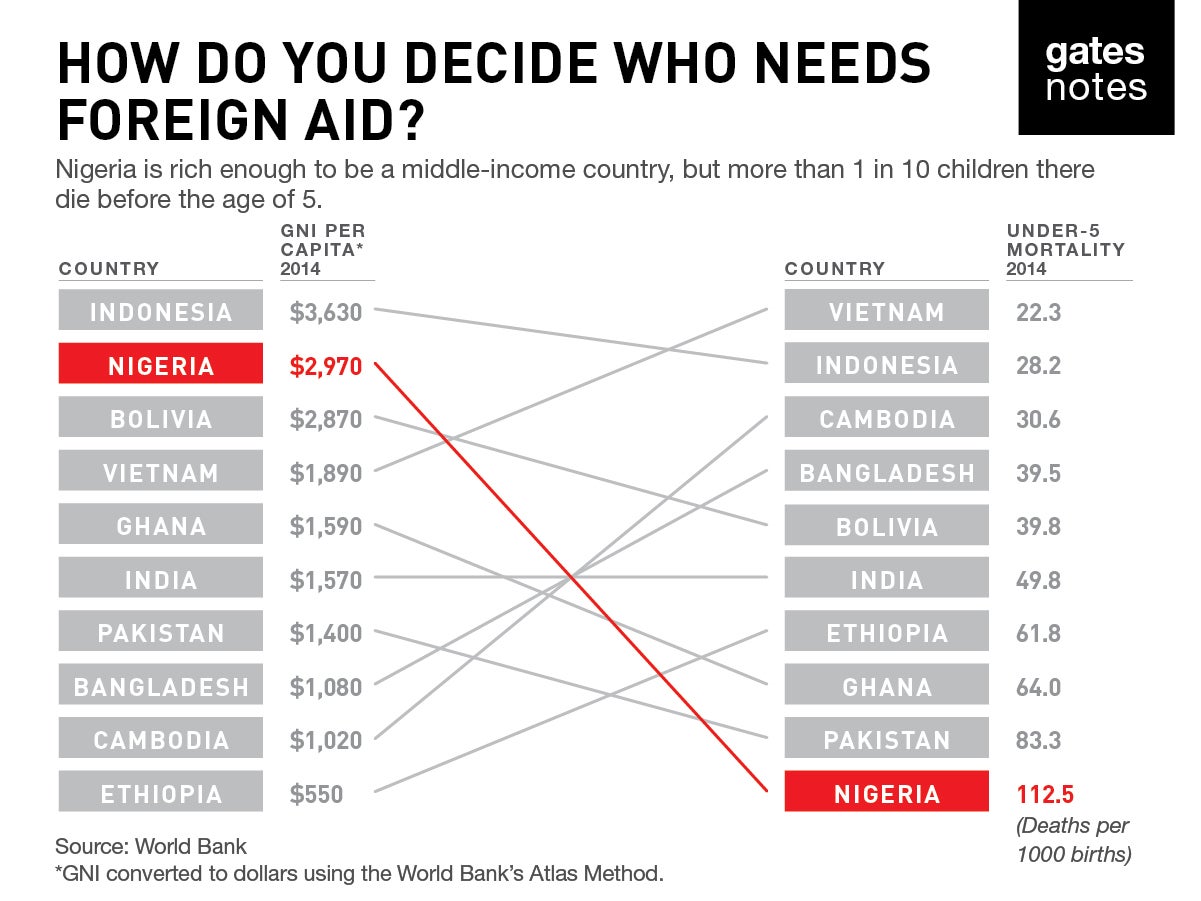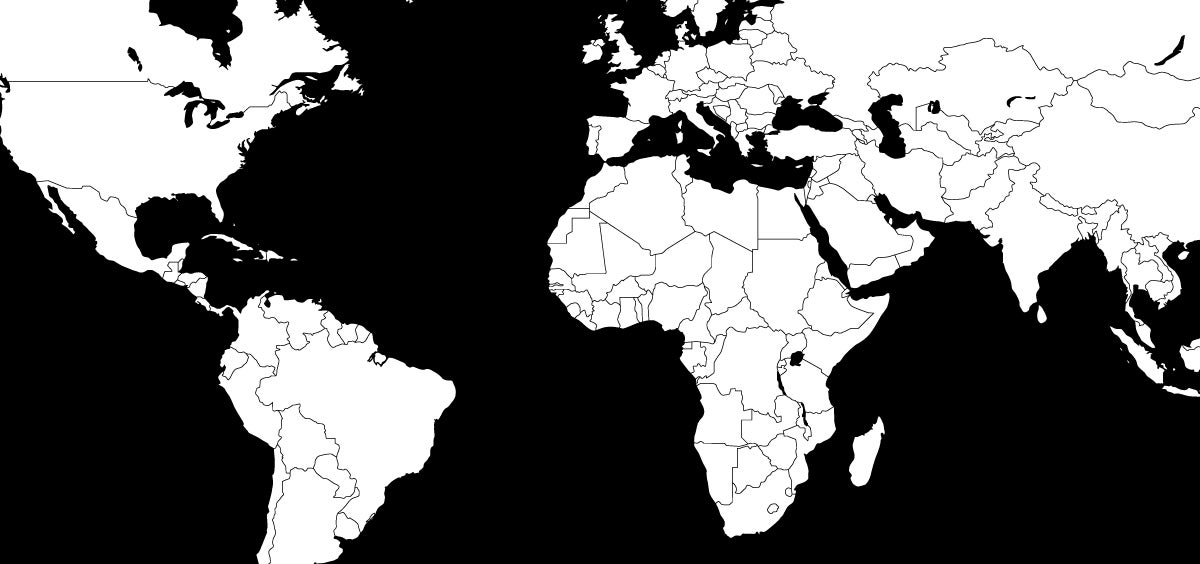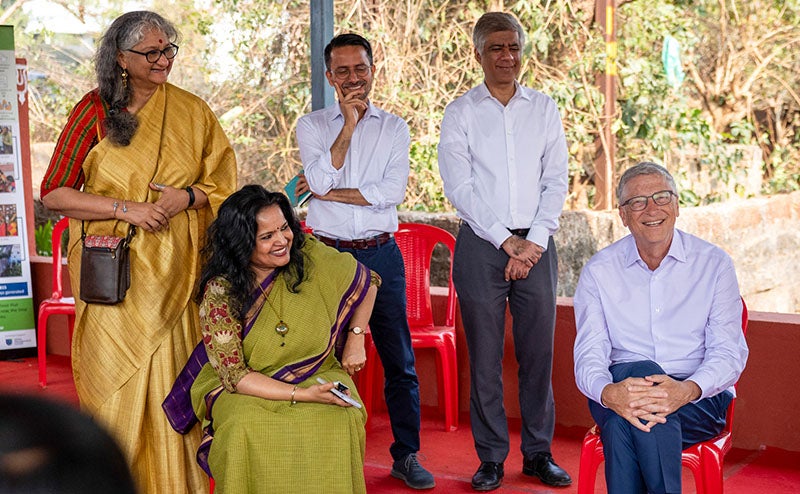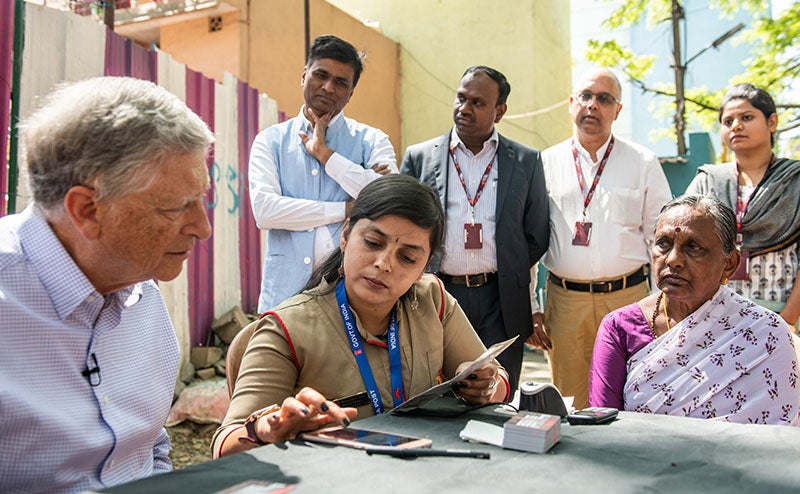I’d highly recommend Borgen to anyone interested in politics, coalition-building, and the triumphs and challenges of leadership.
Lately I have been reading and thinking about an incredibly important issue that gets too little attention—even among global-health obsessives like me. If we don’t deal with it, it could be a dramatic setback for the world’s efforts to fight extreme poverty. If we do, we will lay the foundation for helping millions more people escape poverty. Later this month I’ll be joining some meetings in Washington, D.C., on this issue, and I want to give you a preview of what we’ll be talking about.
I should start with a little context, and some amazing progress that you may not know about: There are fewer poor countries in the world today than there have ever been. Since 2000, the number of low-income countries has fallen from 63 to 34—a drop of nearly 50 percent! China is the best-known example, but there are dozens of others including Brazil and Mexico. South Korea, which received enormous amounts of aid after the Korean War, is now a net donor. And I expect this trend to continue: By 2030, there will be almost no poor countries left.
“Even though there will be fewer poor countries, there will still be very poor people.”
Unfortunately, this silver cloud has a dark lining. Even though there will be fewer and fewer poor countries, there will still be very poor people. And they will be concentrated in fewer places—many of them the very same countries that are moving out of the low-income tier and into middle-income status. Today 70 percent of the world’s poorest people live in middle-income countries, and that percentage will likely go up in the coming years.
Why does that matter? Because most development agencies, such as the World Bank, use a country’s average income as the main factor in deciding whether it qualifies for aid. So the countries that are crossing the threshold into middle-income status risk losing much of the aid they’ve been getting (which includes grants, low-interest loans, technical assistance, and other kinds of support). In the next few years India, Ghana, Nigeria, Pakistan, and Vietnam stand to lose as much as 40 percent of their total development assistance.
You could argue that this is exactly how it should work. As countries get richer, they should be able to take care of their own. In fact that is exactly what’s happening in many developing countries—particularly the ones where the benefits of economic growth are widely distributed. And certainly aid should never replace the investments that countries need to make in their own people.
But in some countries, the average income obscures big pockets of extreme poverty. India is a powerful example. In 2011 its average income was more than $1,400 a year, enough to qualify as middle-income. But in the Indian state of Uttar Pradesh, home to 200 million people, the average was less than a third of that—only $436 a year. In the neighboring state of Bihar, with another 100 million people, it was just $249 a year. That’s about 68 cents a day.
I have visited Bihar, including one trip to a region along the Kosi River, which flows down from the Himalayas. The poverty I saw along the Kosi was heartbreaking. Floods inundate the region during monsoon season, forcing villagers to abandon their homes for months at a time. One community I visited had no electricity or running water, which meant no toilets. Most adults were farm laborers, and their children worked as rag pickers.
Despite its challenges, Bihar is making progress. Vaccination rates are on the way up—the state and the rest of India were declared polio-free in 2014—and plans are now afoot to keep improving the health care system. The roads are better and more children are going to school. Much of the credit goes to the people and leaders of the state, but foreign aid has been an important factor too.
If Bihar were a separate country, it would keep qualifying for that assistance. But because it is part of India, it won’t. Even if India raised more in federal taxes—which already transfer a significant share of wealth to low-income states like Bihar—it would not make up for the lost funding.
It would be a shame if the health workers I met in Kosi couldn’t keep vaccinating children because Indians living in cities hundreds of miles away make a little too much money.
There is another problem with using average income as the main criterion for aid: Income is not an especially good measure of concrete improvements in people’s lives. It doesn’t tell you whether they are living longer, or whether they are more likely to get a good education, find a job, and raise healthy children. Although income can be a decent proxy for these things, if you look only at income, you can miss the bigger picture.
For example, Nigeria has a higher average income than Vietnam, Pakistan, or Ghana. But compared with people in those countries, Nigerians die younger, are less likely to be literate, and are more likely to die before age 5 or in childbirth.

The point of aid is not to raise incomes; it is to help people improve their lives. So income should not be the only measure of success.
In Washington I’ll be meeting with leaders at the World Bank and other aid agencies who are working on these challenges. I’ve heard many good ideas that should be on the table. Could we broaden the eligibility requirements beyond income, to include things like measures of health, education, and farmers’ productivity? Could we make the boundary between low- and middle-income less clear-cut, and the transition away from aid more gradual? Could we help countries identify their remaining pockets of extreme poverty and target aid to just those areas?
These are tough questions. But it’s important to remember that we’re asking them not because things are going badly, but because things are going well. Hundreds of millions of people in dozens of countries have been lifted out of poverty. More are on the way. Now we need to make sure that the progress benefits as many people as possible.





